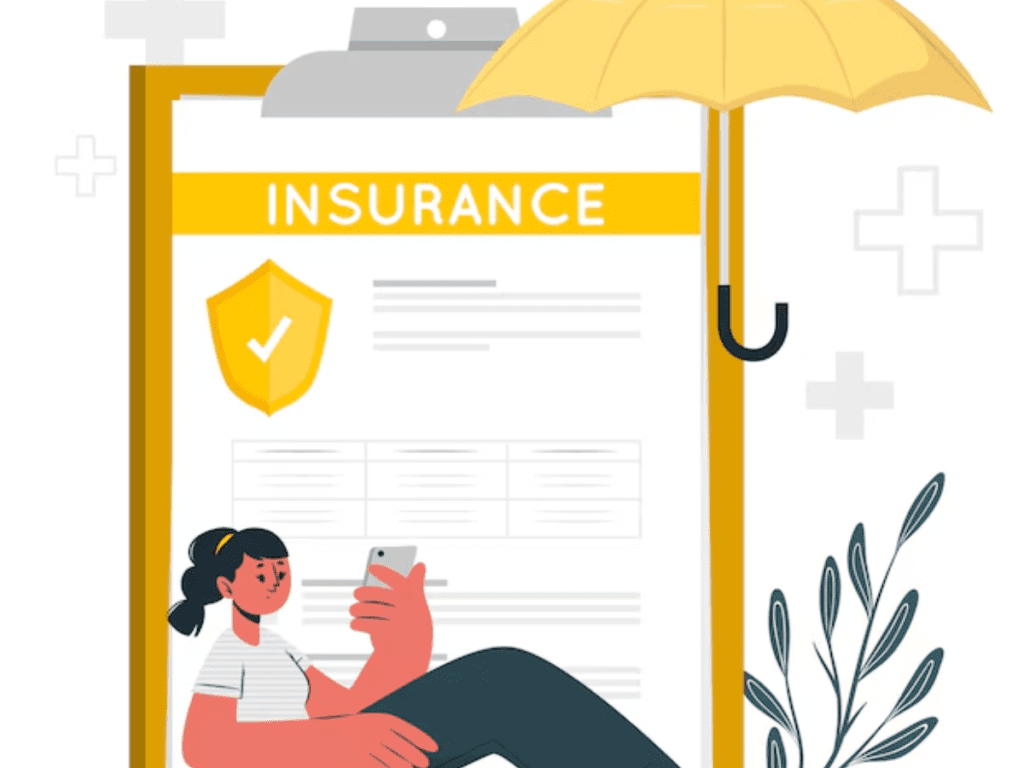Introduction
Insurance is meant to offer financial protection when one needs it, either for health, life, cars, property, or businesses. Yet, scammers and fraudsters usually target unsuspecting policyholders and insurance providers for personal benefit. These scams not only result in financial losses but also make insurance more expensive for all of us. Knowing how insurance fraud is conducted and how to identify and stop scams can help you avoid losing tens of thousands of dollars.
This in-depth guide delves into the various forms of insurance fraud, how they affect us, and practical methods of shielding yourself from being a victim of these schemes.
Understanding Insurance Fraud
Insurance fraud is when an individual intentionally misleads an insurance company to receive compensation or benefits they are not eligible for. Insurance fraud can be perpetrated by policyholders, insurance agents, medical providers, body shops, or organized crime groups. Scams and fraudulent claims cost insurance companies billions of dollars annually, and this expense is transferred to consumers in the form of higher premiums.
Fraud comes in two principal categories
Hard Fraud This type is characterized by intention and calculation prior to attempting fraud, as where a scammer sets an accident up to try to submit bogus medical expenses, or presents claims for imaginary deaths.
Soft Fraud This is when an individual overstates a valid claim to be paid more. For instance, a policyholder may overvalue stolen goods or report existing damage as a new claim.
Both frauds are unlawful and have serious financial and legal repercussions. Being aware of the different types of insurance fraud can assist you in identifying warning signs and taking the right precautions.
Most Frequently Encountered Insurance Scams and Frauds
1 Counterfeit Insurance Policies
The most popular scam is for con artists to claim to be regular insurance agents and sell counterfeit policies. The victims pay for the policies thinking they have coverage, only to discover later that the policy is nonexistent. Such fraud is very prevalent in health, life, and automobile insurance.
How to Avoid It
Verify an agent’s credentials before purchasing a policy. Check their licensing status with your state’s insurance department.
Always buy insurance from well-known and reputable companies.
Confirm policy details by contacting the insurance provider directly.
Be cautious of agents offering extremely low premiums that seem too good to be true.
2 Staged Accidents and Fake Injury Claims
Scammers also tend to cause car accidents to make false claims against insurance companies. Some fraudsters deliberately cause an accident by making a sudden stop on the road, compelling the driver behind them to crash. Others fake injuries or collude with unscrupulous medical practitioners to claim compensation for unnecessary medical procedures.
How to Avoid It
Be on the lookout and keep a distance from cars in front to avoid staged accidents.
Fit a dashboard camera to capture incidents and have evidence in case of a dispute.
In case of an accident, take evidence with photographs and obtain witness statements.
Inform your insurance company and police about suspicious activities.
3 Inflated Repair Bills and Contractor Fraud
Once damaged in an accident or due to property damage, some contractors and repair shops overcharge for services or charge for work they did not do. In others, they might even cause more damage to pad costs.
How to Avoid It
Get multiple estimates for repairs prior to approving anything.
Select contractors or repair shops that your insurance company recommends.
Request comprehensive invoices and verify that repairs correspond to the bills.
Avoid contractors who claim they can process your insurance claim directly.
4 Life Insurance Scams
Life insurance fraud may include someone pretending to be dead, crooks forging signatures to alter policy beneficiaries, or con artists selling bogus life insurance policies. Sometimes fraudsters obtain someone’s identity and use it to purchase policies on the unsuspecting person.
How to Avoid It
Review your life insurance policy on a regular basis and make changes to beneficiary information when necessary.
Confirm any updates to your policy with your insurance company directly.
Be wary if a stranger tries to change your policy information.
5 Health Insurance Fraud
Health insurance fraud may be committing fictitious medical claims, billing for unneeded care, or making use of another person’s insurance coverage. There are medical providers who practice fraud by billing for costly procedures that never happened.
How to Prevent It
Check your insurance statements and medical bills to verify accuracy.
Report any charges or medical services that you never received.
See only healthcare providers who are suggested by your network insurance.
Watch out for providers who insist on unnecessary testing or treatment.
6 Home Insurance Fraud
Some scammers actually destroy their property to make claims on insurance or overstate damage. Others simply include stolen property that does not exist in order to collect a larger sum of money.
How to Avoid It
Maintain a current record of your high-value possessions with receipts and photos.
Make legitimate losses and avoid overreporting losses to recover more money.
Check repair estimates and do not hire contractors who promote fraudulent claims.
7 Workers’ Compensation Fraud
Workers’ compensation fraud is when employees pretend or exaggerate on-the-job injuries to collect benefits. Employers also commit fraud by misclassifying workers or underreporting payroll to lower insurance premiums.
How to Avoid It
Employers must keep accurate records and take safety precautions to avoid on-the-job injuries.
Workers should report honest occupational injuries and submit medical records.
Insurance agencies should perform serious investigations of dubious claims.
How to Protect Yourself from Insurance Fraud
Work with Credible Insurance Agencies
Choose insurance providers with a strong reputation and positive customer feedback. Check online reviews and verify their licensing with the appropriate regulatory authority. Avoid companies that have numerous complaints or a history of fraudulent activities.
Verify Policy Details Before Making Payments
Before buying an insurance policy, read the terms and conditions carefully. Fraudsters try to hurry their victims into making a decision, so go slow and comprehend the policy. If you are unsure, talk to an independent financial advisor.
Be Wary of Unsolicited Approaches
Be cautious of unsolicited phone calls, emails, or messages with discounted insurance policies. Scammers tend to use false promotional offers to lure victims into purchasing fake coverage. Always check the authenticity of such offers by calling the insurance company directly.
Protect Your Personal Information
Keep your insurance policy information, Social Security number, and other confidential data secure. Do not give personal data to unauthorized persons, as fraudsters can use it to make false claims or tamper with your policy.
Document All Transactions
Keep a record of all insurance transactions, such as premium payments, claims, and communication with agents. In case of a dispute, precise records will resolve the matter rapidly.
Report Suspicious Activity
If you have reason to believe that insurance fraud is being committed, report it to your insurance company or the appropriate regulatory agencies. Most insurance companies have fraud investigation units that can investigate suspicious claims. Reporting fraud prevents others from becoming victims.
Monitor Your Insurance Accounts Regularly
Just like you monitor your bank statements, check your insurance statements from time to time. Check for unauthorized alterations, mysterious deductions, or unknown claims. If something appears suspicious, report to your insurer as soon as possible.
What to Do If You Become a Victim of Insurance Fraud
If you believe you have been defrauded, act quickly to limit financial losses and prevent further fraud.
Call your insurance company and report the situation. Give all the information and evidence.
Submit a complaint with consumer protection agencies, state insurance commissions, or law enforcement if needed.
Review your credit report to verify that your personal information has not been used for identity theft.
Learn the most recent fraud methods to avoid future similar scams.
Conclusion
Insurance fraud is a common phenomenon with far-reaching implications, affecting individuals, businesses, and the stability of the insurance sector as a whole. Fraudulent schemes not only cause monetary losses to insurance firms but also contribute to higher premiums for truthful policyholders. When fraudulent claims are common, insurance providers must make up for losses by increasing rates, thus making it more costly for everyone to gain necessary coverage. This, in turn, decreases trust in the system and places undue financial burdens on consumers and insurers alike.
Insurance fraud can come in many forms, from inflated claims and fabricated accidents to planned collisions and identity theft.
Others will try to cheat on insurance policies for their own benefit, either by overvaluing claims or making up incidents in order to collect. Organized crime syndicates tend to perpetrate large-scale fraud operations, focusing on insurance companies with sophisticated methods that are hard to identify. Even minor fraudulent claims add up to the problem, so it is important for everyone to be aware of the warning signs and take precautions. To safeguard yourself against falling a victim of insurance scams, vigilance and knowledge are necessary. Always crosscheck policy information prior to buying insurance and only deal with a credible provider.
Avoid very attractive offers since scammers would usually entice unsuspecting victims with promises of very low premium payments or assured coverage. Reading the small print of your policy document and knowing the terms and conditions can save you from unwanted complications and even scams. Also, proactive prevention of fraud will make a big impact. Inform the relevant authorities or insurance fraud prevention agencies about suspicious activity. If you notice discrepancies in policy documents, unauthorized charges, or delays in claim processing, it is wise to clarify the position promptly.
Numerous insurance organizations possess special fraud prevention units and call centers through which policyholders report fraudulent practices confidentially. If you engage with fraud prevention directly, you assist in creating an open and transparent insurance industry.

